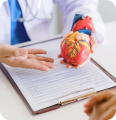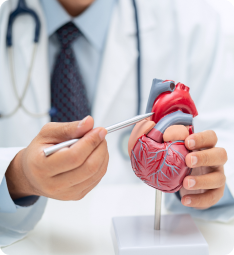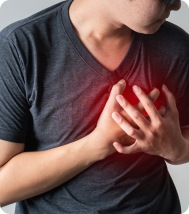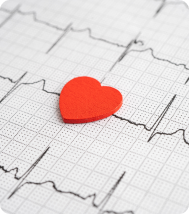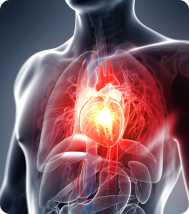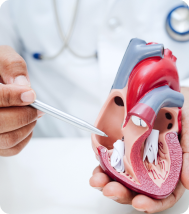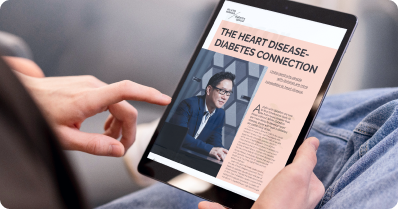Cardiac & Heart Screening in Singapore

Heart screening has become increasingly important in Singapore, where fast-paced lifestyles, high stress levels, and convenience-driven diets can take a toll on cardiovascular health. Many people spend long hours at work or sitting, often overlooking the subtle signs that point to potential heart issues. By making heart screening a regular part of personal health care, individuals can better understand their risk factors and take timely steps to protect their long-term heart health.
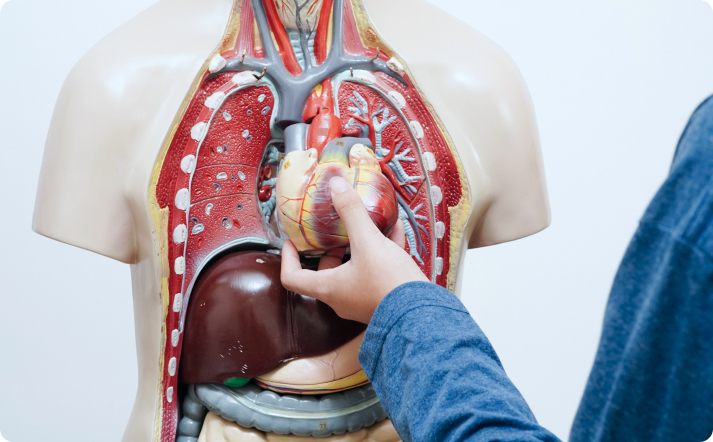
What Is (Cardiac) Heart Screening?
Cardiac or heart screening involves a series of tests and evaluations designed to detect early signs of heart disease. These screenings can include blood tests, electrocardiograms (ECG), echocardiograms, stress tests, and imaging studies like CT scans or MRIs. The goal is to identify risk factors or symptoms that could indicate potential cardiovascular issues before they become serious problems.
Who Should Consider Heart Screening?
Heart disease is a significant health concern in Singapore, as it is one of the leading causes of death. According to the Singapore Heart Foundation, in 2024, cardiovascular disease was responsible for 30.5% of all deaths in Singapore. This translates to nearly one in three deaths in Singapore being caused by heart diseases or strokes. These numbers may sound alarming, but the good news is that many heart conditions can be detected early and managed effectively with regular screening.
Heart screening is a proactive way to understand your cardiovascular health before symptoms appear. While it’s beneficial for anyone who wants peace of mind, you should strongly consider regular heart screening if you fall into any of the following groups:
- Individuals Aged 40 and Above – As age increases, so does the risk of heart disease. Regular screenings can help catch any early signs of heart problems.
- Family History of Heart Disease – Those with a family history of heart conditions should be particularly vigilant, as genetics can play a significant role in cardiovascular health.
- Previous Heart Conditions – Individuals who have had previous heart conditions, such as heart attacks or strokes, should undergo regular screenings to monitor their heart health.
- Existing Health Conditions – People with conditions such as hypertension, diabetes or high cholesterol are at an increased risk of developing heart disease.
- Individuals with Kidney Disease – Chronic kidney disease (CKD) can raise blood pressure and promote plaque buildup in arteries, significantly increasing the risk of heart disease.
- Those with Chronic Inflammatory Diseases – Long-term inflammation from conditions like rheumatoid arthritis or lupus can damage blood vessels and promote fatty deposits, raising the risk of heart attacks.
- Lifestyle and Modifiable Risk Factors – Even without an existing medical condition, lifestyle habits can influence your heart health. Screening is especially important if you:
- Smoke or drink excessively
- Have a sedentary lifestyle
- Are overweight or obese
- Eat a high-fat or high-sodium diet
- Experience chronic stress
Types of Heart Screening Tests
Regular heart screening tests are essential for early detection and prevention of cardiovascular diseases.
- Electrocardiography (ECG or EKG) – ECG measures the electrical activity of the heart using electrodes placed on the skin. This quick and non-invasive test can detect arrhythmias, heart attacks, and other heart abnormalities.
- Echocardiography (Echo) – This non-invasive test uses ultrasound waves to create detailed images of the heart’s structure and function. It provides comprehensive information about heart size, shape, and movement.
- CT Coronary Artery Calcium Scoring – This CT scan measures calcium build-up in the coronary arteries, helping to assess the risk of coronary artery disease.
- CT Coronary Angiography – This CT scan uses a contrast dye to visualise the coronary arteries, detecting blockages and other issues.
- Coronary Angiography – An invasive procedure where a catheter is inserted into a blood vessel and guided to the coronary arteries, followed by the injection of contrast dye and X-ray imaging. It provides highly detailed images of the coronary arteries and is considered effective for detecting blockages in the heart.
- Exercise Cardiac Stress Test – This diagnostic test monitors heart rate, blood pressure, and ECG while the patient exercises on a treadmill or stationary bike. It can reveal how the heart responds to physical stress.
- 24h Ambulatory Blood Pressure Monitoring (ABP) – Utilises a portable device that measures and records blood pressure at regular intervals over 24 hours. It provides a comprehensive assessment of blood pressure variations throughout the day and night.
- Chest X-rays – Uses X-ray imaging to view the chest, lungs, and heart. It is useful in detecting lung problems that affect heart function.
- Invasive Cardiac Catheterisation (ICA) – This involves inserting a catheter into the heart through a blood vessel, often to measure pressures within the heart chambers and take blood samples. It provides detailed information about heart function and blood flow.
- Other Tests:
- Nuclear Stress Test – This test uses radioactive dye and imaging to see blood flow to the heart both at rest and under stress. It offers a detailed evaluation of blood flow.
- MRI Scan – Provides detailed images of the heart without radiation, which is useful for soft tissue evaluation.
- Blood Tests (Cholesterol and Blood Glucose) – Here, blood samples are taken to measure cholesterol levels and blood glucose which helps identify potential risk factors for heart disease.
- Body Weight and BMI – Takes weight and height measurements to calculate Body Mass Index (BMI) and assess the risk for heart diseases related to obesity.
How to Prepare for Cardiac Screening Tests
Fasting Requirements
Many heart health tests require fasting to get accurate results:
- Blood Lipid Profile (Cholesterol and Triglycerides) – Fast for 9-12 hours before the test. You should not eat or drink anything except water during this period.
- Glucose Levels – Typically require fasting for 8-10 hours.
- Other Blood Tests – Some may also require fasting, so always follow your doctor's instructions closely.
If you have any specific health conditions (like diabetes), consult your doctor for tailored fasting guidelines.
What to Expect During Your Heart Health Screening
On the day of your screening, your cardiologist will review your medical history and discuss any symptoms you may have noticed. Depending on the tests involved, you may:
- Be asked to change into a gown for some tests.
- Have your blood pressure, heart rate, and oxygen levels checked
- Provide a blood sample
- Have electrodes placed on your chest for heart monitoring
- Perform a cardiac stress test on a treadmill or stationary bike
What Comes After Your Heart Screening?
Once your results are ready, your doctor will explain what they mean and discuss the next steps. This may involve lifestyle changes, medication, or further testing if needed. If you have ongoing heart conditions or a strong family history, regular follow-ups with a cardiologist help ensure your heart health stays on track.
Frequently Asked Questions
Heart screening helps detect problems early, even before symptoms appear. Identifying risks such as high blood pressure or cholesterol allows for timely management and reduces the chance of a heart attack or stroke.
Some heart screenings may be recommended to begin as early as age 20; while others may come later. However, if you have a family history of heart disease and other risk factors, your doctor may suggest a customised screening regimen for you.
A typical heart screening can take anywhere from 30 minutes to a few hours, depending on the number and type of tests performed.
To lower your risk, maintain a healthy diet, engage in regular physical activity, avoid smoking, and limit alcohol consumption. Regular check-ups and managing conditions such as diabetes and hypertension are key.
Many heart screening packages are MediSave or insurance claimable, depending on the tests included, your medical needs and your insurance policy. It is best to check with your doctor and insurer for detailed coverage information.
The cost of heart screening in Singapore varies widely depending on the tests performed and the healthcare facility where it is performed. Please contact us for detailed pricing information.

Our Heart Screening Specialist: Dr Eric Hong
MB BCh (Ireland), MRCP (United Kingdom), FAMS (Cardiology), DIP (CBNC, USA), FSCAI (SCAI, USA), FACC (ACC, USA), FESC (European Society of Cardiology, France), FRCP (Edinburgh, United Kingdom)
Dr Eric Hong Cho Tek is a Singapore-based cardiologist with extensive training in both interventional and imaging-based cardiac care. He completed two ACGME (Accreditation Council for Graduate Medical Education, USA) clinical fellowships in Interventional Cardiology and Non-Invasive Cardiac Imaging. His clinical expertise covers cardiac CT angiography, PET/SPECT imaging and nuclear cardiology, enabling him to offer well-rounded assessments and treatment options. Dr Hong’s areas of interest include interventional cardiology (femoral and radial access), sports cardiology, cardiac rehabilitation and advanced cardiac imaging.
Our Insurance Partners
To keep our services accessible and convenient to our patients, we accept most major insurances
and can assist with the claims process.
We encourage you to call our clinic so we can review your coverage and assist you accordingly.


